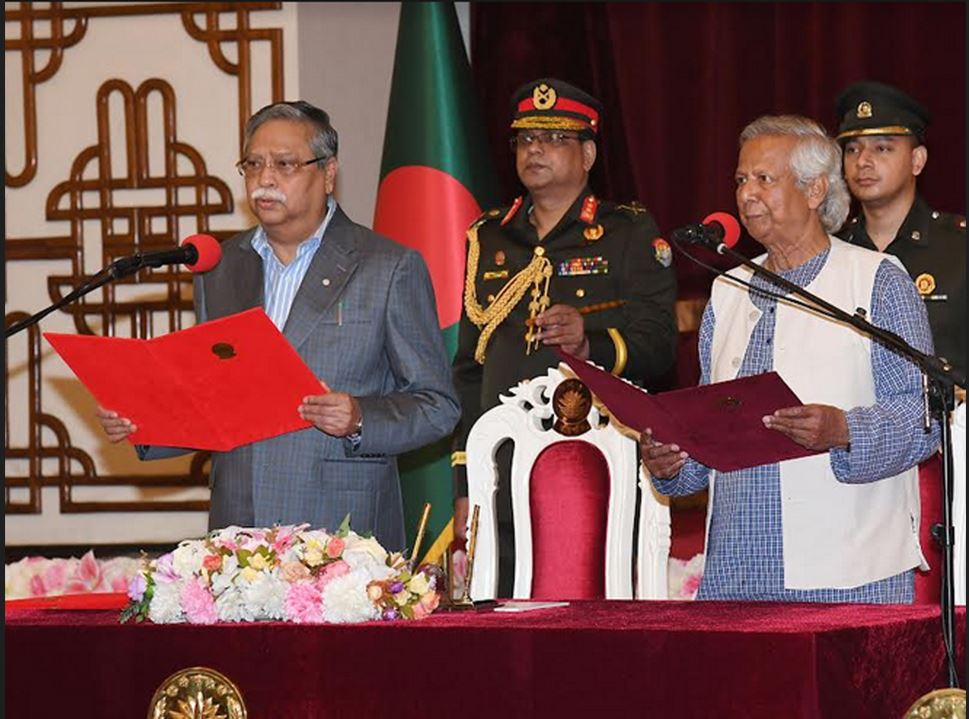
My only trip to Bangladesh was in December 2008. I was an election observer for Washington’s International Republican Institute assigned to Chittagong. Returning to Dhaka, I attended a rally for Sheikh Hasina and then had the opportunity to talk to her aides. It was a time of hope, but the nation’s sorrow showed through. The legacy of the 1971 war remained apparent, and, as I roamed among the various political parties, I heard complaints about “war criminals”, those like Jamaat-e-Islami, who sided with Pakistan’s military as it conducted genocide against Bengalis.
In the West, many analysts portray the coup against Sheikh Hasina as the revenge of Generation Z. Sheikh Hasina had grown increasingly autocratic, and her efforts to crush protests by brute force backfired. However, the aftermath of the coup shows that the spirit of genocide grows just below the surface in Bangladesh’s Generation Z.
Islamists and opportunistic youth launched a pogrom against Bangladesh’s small Hindu community, seizing, selling, and raping women in scenes reminiscent of the Islamic State assault on Iraq’s Yezidi population in Sinjar. Religious freedom is the true reflection of a government’s commitment to liberalism and democracy. In hindsight, Sheikh Hasina was a finger in the dyke. The mob today shows that their vision of the future is not much different than Pakistan’s was in 1971.
Radicals also lynched actor Shanto Khan and his father, Selim Khan, a prominent Tollywood producer. Their crime? Selim had produced “Tungi Parar Miya Bhai”, based on the life story of Sheikh Hasina’s father, Bangabandhu Sheikh Mujibur Rahman, the founder father of Bangladesh. This is reminiscent of how, upon taking power in Cairo, the Muslim Brotherhood sought to prosecute Adel Emam, whose 1994 film “The Terrorist” had satirised the cynicism, ignorance, and power obsession of Egyptian Islamists, initially sentencing him (in absentia) to three months in prison. President Mohamed Morsi did not appreciate that his actions simply affirmed everything Emam had done. To target artists is to signal absolute disdain for free speech. Authoritarians use force to stifle speech only when they fear it. By lynching the Khans, Bangladesh’s revolutionaries signal revenge rather than ideology, which motivates them, and they have not the intellectual capacity to defend their own positions and beliefs. They are autocrats whose thin veneer of idealism is fake.
The same movement invited Nobel Laureate Muhammad Yunus, an 84-year-old Nobel Peace Laureate, to return as interim leader, which Yunus accepted. While appointing Yunus signals moderation to the international community where Yunus is popular, he should have reconsidered or at least conditioned his acceptance. One suspects that his acceptance of the role of head of the interim government might cover up the worst abuses and perhaps lend his name to the accession of an authoritarian regime.
Rather, Yunus should have reconditioned his acceptance on the willingness of the revolutionaries and student movement to turn over for justice those who target the Hindu and other minority communities and those who lynch artists simply because they do not like their films. Yunus has done well to ask for the cessation of violence against the minorities, or else he will resign. But Yunus must have considered and the international community must reconsider: Will he really have influence, or will his legacy become a cover for a new generation of autocrats and religious chauvinists?
source : The American Enterprise Institute
